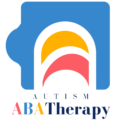When it comes to choosing the best environment for Applied Behavior Analysis (ABA) therapy for your child, parents are often presented with two primary options: therapy in a dedicated ABA center or services provided by an agency in the comfort of their home. Each option offers distinct advantages and challenges, and understanding the differences is crucial to making the right decision for your family.
ABA Therapy Centers
ABA centers are specialized facilities equipped with tools and resources designed to create an optimal learning environment. Here are some key characteristics of ABA therapy centers:
Advantages of ABA Therapy Centers:
- Structured Environment: Centers provide a controlled setting tailored to teach specific skills like communication, play, and social interaction.
- Social Opportunities: Children often interact with peers, offering valuable opportunities to practice social skills in a group setting.
- Access to Resources: Centers typically have access to specialized materials and tools that enhance therapy sessions.
- Supervised Staff: Board-certified behavior analysts (BCBAs) closely monitor sessions, ensuring consistent progress.
Challenges:
- Commuting Requirements: Families need to travel to the center, which can be time-consuming.
- Limited Flexibility: Sessions occur on a fixed schedule that may not align with a family’s routine.
Home-Based ABA Therapy Agencies
Home-based ABA therapy involves therapists visiting a child’s home to conduct sessions in a familiar environment. Here’s what sets this approach apart:
Advantages of Home-Based Therapy:
- Personalized Attention: Therapists work one-on-one with the child, tailoring strategies to their natural routines.
- Family Involvement: Parents and caregivers can actively participate in the therapy process, learning strategies to use between sessions.
- Familiar Environment: Conducting therapy at home reduces anxiety for some children and encourages generalization of skills in their daily lives.
- Flexible Scheduling: Home-based therapy offers greater flexibility to accommodate a family’s unique needs.
Challenges:
- Limited Social Interaction: Children may not have as many opportunities to interact with peers. However, home-based therapy allows for personalized and intentional social interactions, focusing on quality rather than quantity of peer engagement.
- Resource Availability: Home settings might lack the specialized tools and materials found in centers. However, the home setting promotes the use of familiar household items, fostering natural learning opportunities and enhancing skill generalization.
- Space Constraints: Effective therapy may require a dedicated area within the home. However, a dedicated therapy area within the home creates a consistent, comfortable environment tailored specifically to the child’s therapeutic needs.
Which Option is Right for Your Family?
The decision between a therapy center and a home-based agency depends on your child’s unique needs and your family’s circumstances.
- Choose an ABA Center if your child thrives in a structured, resource-rich environment and benefits from regular peer interaction.
- Opt for Home-Based Services if you value flexibility, want to integrate therapy into your daily routine, and prioritize one-on-one attention.
Combining Both Approaches
For some families, a hybrid model combining center-based therapy and home-based sessions may provide the best of both worlds. This approach ensures children benefit from structured learning environments while also applying skills at home.





